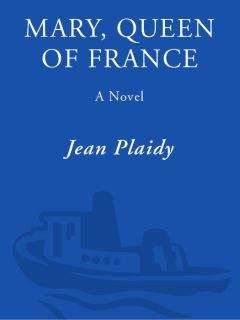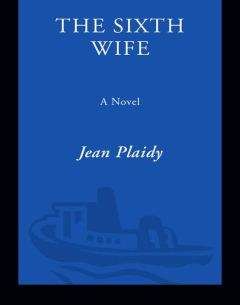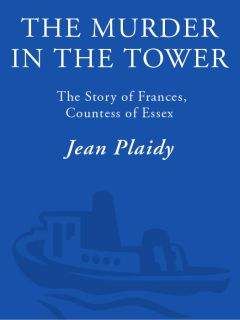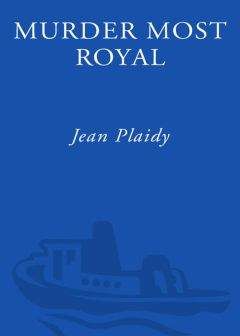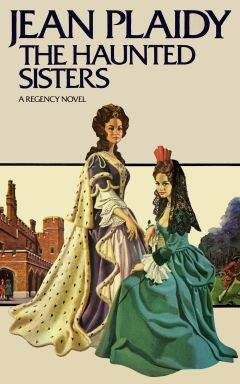Jean Plaidy - To Hold the Crown: The Story of King Henry VII and Elizabeth of York
Savoring his freedom from the cloying devotion of his wife he was in excellent form, ready to enjoy the adventure; and when he heard that the Prince of Wales was on his way to meet him in the king’s name he was greatly amused. The boy was not quite fifteen, full of life, straining at the leash. Philip looked forward to an entertaining encounter.
Young Henry meanwhile was rehearsing what he would say to Philip. Philip was handsome and therefore vain, he presumed. Philip was important to his father; therefore he must treat him with the utmost respect. At the same time he must let the Archduke know that he was of no small importance himself: Prince of Wales, king-to-be, someone to be reckoned with for the future.
They met at the Bishop’s Palace and stood face-to-face smiling at each other. The speeches Henry had rehearsed were forgotten. He said: “Why, my lord Archduke, you are indeed as handsome as they say.”
Philip was amused. “My lord Prince,” he said, “I see you have heard tales of me similar to those I have heard of you. And I will say with you . . . they do not lie. You are all that I heard of you though I’ll confess I did believe it was largely flattery.”
There could not have been a better beginning. Philip knew exactly how to please the boy and he set out with all his considerable charm to do so.
As for young Henry he was delighted; he felt he was making a supreme success of his first diplomatic mission.
Before they sat down to the lavish banquet the Bishop’s servants had prepared they were the best of friends. Philip had explained that he had left Juana behind to recuperate after the fearful ordeal at sea. Henry wanted to hear about the shipwreck and listened entranced to Philip’s account.
It was dramatic. Henry could see the young man—who was already a hero to him—giving orders on the deck.
“We believed our last moment had come. I prayed then to God. I went on my knees and asked for my life to be spared. I believe—but you may think I am wrong—that I have work to do here on Earth and the time has not yet come for me to leave it.”
Henry protested that he did not think the Archduke was wrong at all and God must have realized that.
“I swore to the Virgin Mary that I would make two pilgrimages if she would intercede for me. I promised her I would go to her churches of Montserrat and Guadalupe and there do homage to her if she would but plead with God to save my life.”
“And she did,” said Henry, his eyes glistening with religious fervor. Knights were the more to be admired if they combined piety with bravery.
“From that moment the wind dropped. The rain abated so that we could see the outline of the English coast,” went on Philip.
It was not quite true but Philip could not resist dramatizing the story for such an entranced listener.
“Heaven intervened,” said Henry piously.
“That is so, my Prince. We came ashore although I must confess that the inhabitants looked a little fierce at first.”
“They should be punished for it,” said Henry, his little mouth hardening.
“Nay, nay. They were protecting the shores of their country. How were they to know that I was a friend? I could have been an invader. Do not blame your good people, my lord Prince. Rather thank them. They would guard your island well. And the best gift a ruler can have from his people is loyalty.”
“I think the people will be loyal to me.”
Philip laid his hand on the boy’s arm. “You have the makings of a great ruler. That is clearer to me than is this goblet of wine.”
How Henry glowed! How he admired the Archduke! He was so good-looking, so charming, and Henry was glad to know although he himself was not yet fifteen and could be expected to put on a few more inches, he was already as tall as Philip.
He asked about Juana. Philip explained that she was suffering from exhaustion and that he had insisted that she remain behind for a while and take the journey to Windsor more slowly.
Henry said: “I look forward to meeting the lady Katharine’s sister.”
“Ah . . . indeed yes.”
Henry shut his lips firmly together. He had been warned by his father not to speak of Katharine. These were her close relations and the subject of her treatment in England could be a dangerous one.
Henry wondered fleetingly what the King intended to do about Katharine; but he was too involved with this fascinating companion to let her intrude into the conversation. Besides she was a forbidden subject. But the very fact of that made him feel he wanted to talk of her.
“Your wife has brought you great possessions,” said Henry; and it occurred to him that if Katharine had been the elder she could have brought Castile to him. He was sure then there would not have been all this uncertainty about his marriage.
At length they retired for the night for they were to leave early next morning. By that time the excellent camaraderie between them was noted by all around them.
It was as though the Archduke of Austria and the Prince of Wales had been friends all their lives and none would have guessed that they had met for the first time only the day before.
It was a pleasant journey. They were both young and healthy enough not to be disturbed by the wintry weather and as they approached Windsor they perceived King Henry with a magnificently attired entourage riding toward them.
King Henry, regal in purple velvet, made a striking contrast to the black-clad Archduke and his rather somber attendants. The King swept off his cap and was glad that he had taken the precaution of wearing a hood with the cap on top so that it could be removed leaving his ears covered, for the icy wind was penetrating and he was plagued by many rheumatic aches and pains these days.
“It is too cold to linger here,” he said to Philip, “but I would say to you that I rejoice to see you. You are as welcome as my son here. He, I and my whole kingdom are at your service.”
Philip replied that he was deeply moved by such a touching welcome and taking his place between the King and the Prince of Wales he rode with them toward the castle.
From a window Katharine was watching. She had hoped to be there in the great hall to greet her sister and her husband but it had not been suggested that she should, so fearing a rebuff she had remained in her apartments.
But I shall see Juana, she told herself. Something must come of that.
She looked from the window. She saw the three men. But where was Juana? She was terribly afraid. Why was it that people always whispered about her sister? She knew Juana was wild. She had always been so. Only their mother had known how to deal with her. But there were times when Juana had been a loving sister, kind and even gentle, always ready to listen to other people’s problems.
But where was Juana now?
There was a scratching at her door and a young girl came in. This was the Princess Mary—the King’s youngest daughter who was some ten years old. Mary had become very beautiful—perhaps the most beautiful of all the King’s children. That beauty had come down through the House of York and with it a vitality, which had shown itself in Henry, Margaret and Mary.
Mary was tenderhearted, more affectionate than her sister Margaret had been and she had shown friendship for Katharine for whom she was vaguely sorry—mainly because she never had any new clothes and she was in some sort of disgrace it seemed to Mary—disgrace which was not of her own making.
Now Mary was very excited. “They’re here,” she cried. “There is to be a grand banquet. I am to go. I have my father’s permission. I shall play the lute and the clavichord and everyone will say how clever I am. Perhaps I shall dance. Perhaps Henry will dance with me.”
Mary was silent. She had been tactless again. She shouldn’t have mentioned Henry because Katharine wanted to marry him and she was not sure that he wanted to marry her and there was a lot of fuss about some dowry, which upset Katharine a great deal.
“I was hoping to see my sister,” said Katharine. “She is not with the party?”
“Oh, Queen Juana . . .” Mary was just about to say Mad Juana and remembered in time that she was Katharine’s sister. “She is staying behind . . . She has to rest. . . .”
Mary’s voice trailed off. Then she was at the window.
“They look very dull,” she said, “except my father . . . and Henry of course . . .”
Katharine was thinking: What if I am invited to the banquet? Is my ruby brooch big enough to hide the darn in my velvet gown?
But she was not thinking very seriously about what she would wear. The one thought which kept hammering in her mind was: Where is Juana?
The King led his guest into the castle. As they walked he congratculated the Archduke on his escape and assured him of his own delight in the outcome.
“I have long desired to talk with you, my lord Archduke, and now fate in this rather churlish way has gratified my desire.”
Philip replied as graciously. He could only rejoice in his shipwreck since it had brought about this happy meeting.
The state apartments of the castle were magnificent and Philip admired them. Then Philip was conducted to the most splendid apartment of them all, hung with cloth of gold and crimson velvet, and as it was lavishly decorated with Tudor roses Philip realized that the King was giving up the royal bedchamber to him.
It had been the custom of kings during the ages when they wished to show especial honor that they gave up this most intimate of their apartments. In medieval times often the guest had been expected to share the King’s bed. Later this custom had been altered a little and now it was customary to relieve the guest from sharing and offer only the bedchamber.
But it was indeed the ultimate honor and Philip was delighted.
The King had realized that it would not be possible to exclude Katharine from the celebrations; but the fact that her sister Juana had been left behind to follow later was an indication that he need not worry too much about the treatment the Princess had received in England.
With his usual shrewdness he had summed up Philip. Ambitious, wily to an extent, luxury loving, something of a libertine, a young man whom it should not be difficult for such as himself to handle, and he intended to get the most advantage from the visit.
Young Henry had already succumbed to the visitor’s charm. There had been no need to warn him to flatter the young man; he was doing that unconsciously. The King thought uneasily: there is a similarity between them. Will Henry be like Philip when he comes to the throne?
But that was a long way ahead, the King hoped, although his rheumatism was dreadfully painful particularly in such inclement weather as this. But he had time ahead of him; if he could get a wife he would feel renewed.
Katharine received the message. She was to appear at the banquet.
Her hopes were raised by Henry’s changed attitude toward her when she was presented to her brother-in-law; Philip embraced her and those hopes soared. She wondered when she would have an opportunity to talk to him.
She was grateful that she still had some jewels out of pawn and she had managed to keep one black velvet dress in moderately good condition. When she was dressed in it and put on her jewels she believed she successfully hid her poverty.
Henry proudly presented his daughter Mary to the Archduke, and even his expression softened a little at the sight of the delightful creature. He could not help being proud of his children. The urge was strong in him to get more. Perhaps he could talk to Philip about a bride. Philip’s sister Margaret’s name had been mentioned before. Perhaps he could get the matter settled quickly for it would be an ideal match.
He was affable to Katharine, calling her his daughter, which all about him noticed and they wondered whether this was an indication that there was still a possibility of her marriage with the Prince of Wales or whether it was merely done for Philip’s benefit.
So the banquet began and conversation flowed with the utmost affability between Philip and his attendants and the King and the Prince of Wales and all those nobles who were fully aware of the King’s desire for friendship with the visitor.
The Princess Mary enchanted the company with her lute and clavichord as she had said she would; and she danced to the admiration of all. The King suggested that Katharine dance one of her Spanish dances and that one of her ladies should accompany her in the dance.
It was like those pleasant days of long ago for Katharine when she was treated according to her rank.
Mary had come to her after the dance and taking her hand led her to the dais at the end of the hall on which the royal party were seated. The King made no objection but included her in the smile he bestowed on his daughter.
Young Henry smiled at her, almost possessively and perhaps with real love. She was happier than she had been for a long time.
She sat beside Philip and her heart beat fast with hope. He was smiling at her in a rather vague way as though his thoughts were elsewhere.
“I was dismayed not to see my sister,” she said.
His voice was cold. “She was indisposed after such an ordeal. I was concerned for her health and insisted that she rest before making the journey.”
It sounded as though he cared very much for Juana, and Katharine warmed toward him.
“I shall look forward to seeing her. I doubt not she will join us soon.”
“It will be so, doubtless,” he said.
She thought: if I could speak to him in secret. If I could ask him to convey a message to my father . . . one which the King might not know of. Perhaps he could bring me some relief. If my father knew how short of money I am kept . . .
She would try. But how to speak to him alone? In the dance, perhaps?
“My lord Archduke,” she said quietly, “I should be greatly honored if you and I could dance together.”
He turned to her; his eyes were cold. “My lady, I am but a plain sailor. You would not have me dance with you!”
There was a brief silence. Katharine felt the blood rush into her face. It was an insult—and deliberately given.
The silence on the dais was brief. The Prince of Wales looked dismayed. He felt protective toward Katharine; on the other hand he was completely fascinated by his new friend. Katharine should not have asked him to dance; she should have waited for Philip to ask her. Henry preferred to forget the incident.
The King had been very much aware of it. It told him a good deal. Philip had escaped from Juana; he had treated Katharine as though he regarded her as of little importance.
That was revealing. Then he need not be too careful of her either and he was glad of that. He had been a little uneasy about what the sisters might discuss if they were together. He believed now that there would be no protest from Philip if he sent Katharine away. But perhaps he should allow her the briefest encounter with her sister.
On the following day the Princess Mary came to Katharine’s apartments. She was pouting slightly and Katharine wondered what had offended her, for she was inclined to be spoiled at the Court—like her brother and elder sister Margaret, she was fond of her own way. Now something had upset her and clearly she had come to tell Katharine about it.
